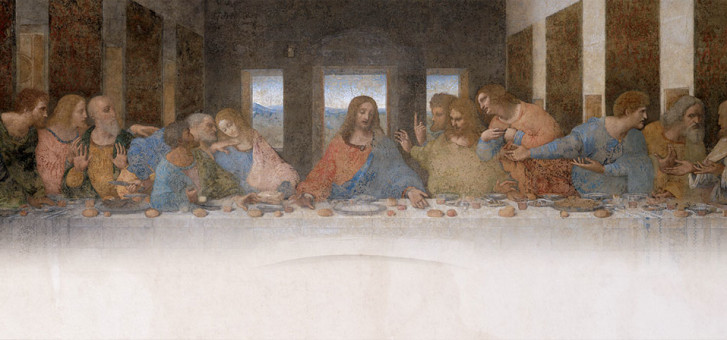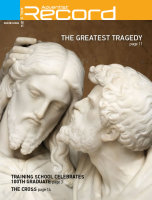There he hung. Motionless. Lifeless. Nothing more than a broken body with a broken heart. Just a few hours earlier he'd been sitting around a table among friends, sharing a meal. Now, he was alone, strapped to a tree. A life cut short. Finished.
It’s the most tragic story of the New Testament, one we should all find time to reflect on this Easter—the death of Judas.
Wait, what? Don’t you mean Jesus? No, I mean Judas—the one and only Mr Iscariot.
Don’t get me wrong—there’s no denying the extremity and significance of the suffering of Christ. What He endured will forever remain unparalleled. But there’s also no denying the amazing things that stemmed from His death—the resurrection, the conquering of sin and the saving of humanity.
The same can’t be said of Judas. There's no silver lining to his story. He is and forever will be known as the man who betrayed the Son of God unto death . . . nothing more, nothing less.
The story of Judas Iscariot is incredibly tragic for a number of reasons.
1) He walked with God
Not in the way that Enoch walked with God, but in the literal sense. Judas was handpicked by Christ (Matthew 10:4) and for three years walked side by side with Him. He would have heard the parables and witnessed the miracles, including the resurrection of Lazarus. One couldn’t hope for a better opportunity to get to know Jesus.
2) He was skilled
Ellen White in The Desire of Ages describes Judas as “a man of keen discernment and executive ability” (p 294). He was also a great leader who the disciples looked up to, and was “called upon to provide the needs of the little company and to relieve the necessities of the poor” (p 717). Imagine the good that could have been achieved if Judas had fully surrendered his heart and talents to the mission of Christ.
3) He was warned
Jesus knew the heart of Judas and gave him every chance to change. “He placed him where he might, day by day, be brought in contact with the outflowing of His own unselfish love” (p 294). When the time for subtlety had run its course, Jesus also tried the direct approach.
“Then Judas, who was betraying Him, answered and said, ‘Rabbi, is it I?’ He said to him, ‘You have said it’” (Matthew 26:25).
“ . . . But Jesus said to him, ‘Judas, are you betraying the Son of Man with a kiss?’” (Luke 22:47).
The Bible is clear that "Satan entered Judas" (Luke 22:3), but this doesn't mean he was beyond restoration. If that were so, Jesus wouldn’t have warned him. The fact that He reached out to Judas showed there was still hope of repentance.
4) He wouldn’t repent
“Then Judas, His betrayer, seeing that He had been condemned, was remorseful and brought back the thirty pieces of silver to the chief priests and elders, saying, ‘I have sinned by betraying innocent blood’ . . . Then he threw down the pieces of silver in the temple and departed, and went and hanged himself” (Matthew 27:3-5).
Remorse is of the Holy Spirit. Thus, consider this sequence as God’s last-ditch effort to reclaim the life of Judas. But remorse without repentance is useless, and Judas “felt no deep, heartbreaking grief that he had betrayed the spotless Son of God” (Desire of Ages, p 722).
The story of Judas may not make for an uplifting read, yet it’s one we all need to consider. Why? Because we are all Judas Iscariots—people handpicked by God, with every opportunity and warning to surrender our lives to Christ.
So are you following Christ or are you a follower? There’s a stark difference. Judas spent three years with Jesus, but “did not come to the point of surrendering himself fully . . . He did not give up his worldly ambition or his love of money. While he accepted the position of a minister of Christ, he did not bring himself under the divine moulding” (p 717).
After his act of betrayal, Judas cast himself at the feet of Jesus (p 722). The eyes of the Saviour looked pityingly upon him, as if mourning a life of what might have been. Each of us will one day find ourselves at the feet of Jesus. How will He look upon us—with pity or with pride?
Linden Chuang is assistant editor of Record-digital.





